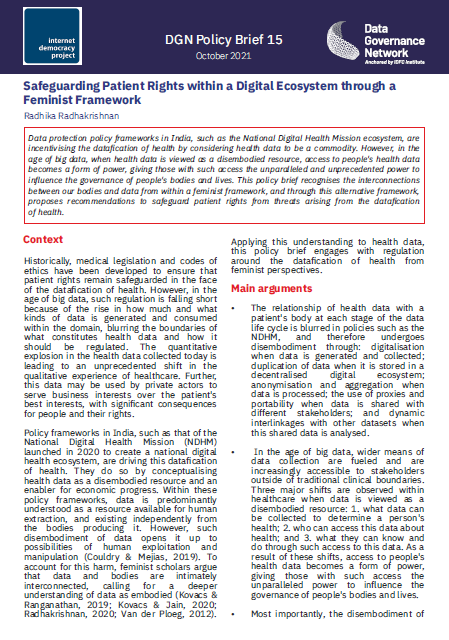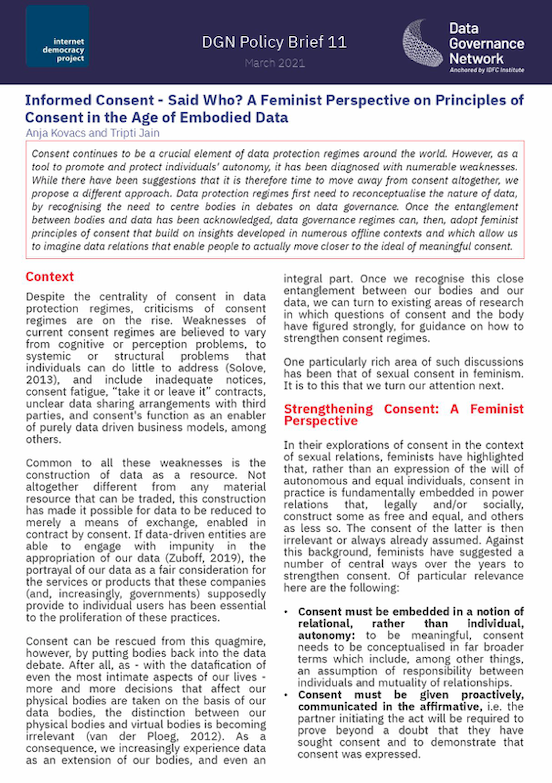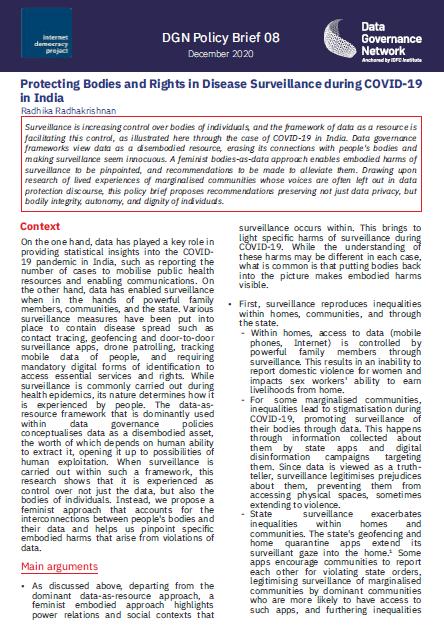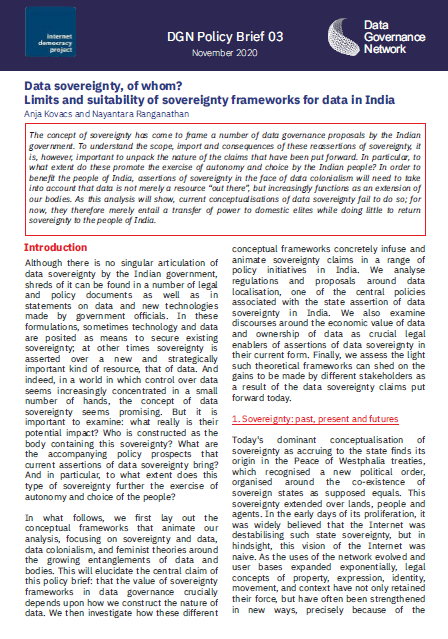Strengthening the account aggregator ecosystem: A feminist perspective — A policy brief
In earlier research, Kovacs and I (2020) identified six feminist principles to strengthen consent in data governance. An examination of the account aggregator (AA) ecosystem against these principles makes clear that the AA framework is a positive step towards addressing some of the key concerns regarding current consent regimes, for example where auditability and granularity are concerned. However, to fully meet the minimum requirements necessary to ensure meaningful consent, further modifications will be needed. In particular, it appears that the focus of the ecosystem currently is on ensuring that AAs are robust, but that it fails to address challenges relating to other stakeholders in the ecosystem. More



